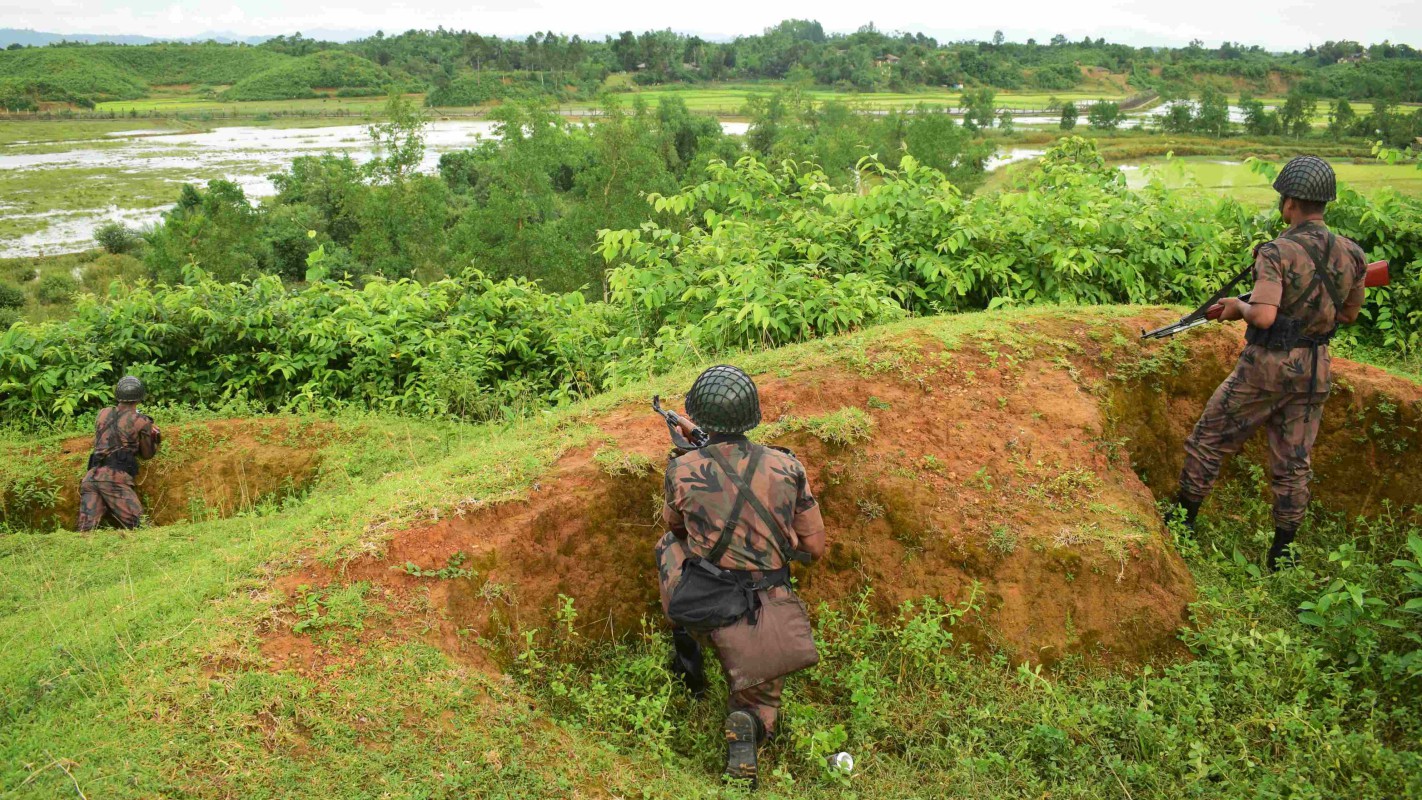Crossing the line: Bangladesh’s proxyambitions threaten Myanmar’s sovereignty

734

By Phyo Lin Aung (NP News) - April 28
Recent reports suggesting Bangladesh’s logistical involvement in Myanmar's Rakhine State have raised alarm across the region and beyond. Far from being a responsible step toward regional stability, this development signals an unsettling shift that could trigger severe geopolitical consequences. According to a report by Northeast News, three divisions of the Bangladesh Army—the 10th, 17th, and 24th—are poised to support a coalition of ethnic armed groups in Myanmar, including the Arakan Army (AA) and Chin National Front (CNF), under a U.S.-backed initiative. This move, cloaked in humanitarian language and logistical assistance, dangerously flirts with the boundaries of international law and respect for national sovereignty.
Contrary to attempts to portray this effort as “non-combat,” providing strategic logistical support in an ongoing armed conflict is a direct act of interference. Supplying resources to insurgent forces, no matter how indirectly, is akin to engaging in a proxy war. Such actions, if validated, represent a dangerous precedent and are tantamount to a military invasion through the back door.
Teknaf base and the militarization of the border
Evidence pointing to the construction of a massive logistics hub near Teknaf paints a troubling picture. Situated near the volatile Rakhine border, this base is reportedly being developed to funnel supplies ranging from food rations to medical aid to anti-Tatmadaw insurgent forces. Additionally, the Cox’s Bazar airport expansion, which is said to be tailored for operating Turkish drones, further escalates regional tensions. Turning a civilian airport into a military drone base directly next to another sovereign nation is a provocative move and invites inevitable retaliation.
These preparations reflect not a defensive posture, but an offensive infrastructure aimed at long-term operations inside another country’s territory. Bangladesh, under this strategy, would not only be assisting rebels but also hosting foreign military technology in a deeply unstable zone—essentially militarizing its border with Myanmar.
Regional diplomacy or geopolitical overreach?
Bangladesh’s evolving posture in the Myanmar crisis, rather than reflecting careful diplomacy, increasingly appears to be a dangerous entanglement in international intelligence networks and proxy warfare. The recent visit of the Director General of the Directorate General of Forces Intelligence (DGFI), Maj Gen Jahangir Alam, to Washington D.C. for high-level talks with the CIA should raise serious concerns—not just within Bangladesh, but across the region. These meetings, reportedly focused on border dynamics, insurgent activities, and the Bengali issue, suggest coordination well beyond standard diplomatic norms.
This deepening intelligence cooperation between Dhaka and Washington is not a neutral development. Rather, it implies Bangladesh is aligning itself with broader U.S. strategic objectives in Southeast Asia, potentially at the cost of its own sovereignty and regional harmony. Furthermore, the recent visit by senior U.S. State Department officials to Cox’s Bazar and the Chittagong Hill Tracts further signals that Bangladesh may be opening its territory to foreign strategic interests—turning a humanitarian crisis into a geopolitical chessboard.
Dangerous alliances in the name of pragmatism
The idea that Bangladesh is now seeking to build coalitions that include historically violent groups such as the Arakan Rohingya Salvation Army (ARSA) is especially troubling. ARSA has long been associated with instability and has been designated as a terrorist organization by the Myanmar government. The arrest of ARSA leader Ataullah and his associates near Dhaka, followed by speculation that Bangladesh may be attempting to incorporate the group into a broader anti-Tatmadaw alliance, should alarm any observer committed to peace.
This is not diplomacy—it is opportunism, wrapped in a thin veil of strategic "pragmatism." Attempting to unify splintered rebel groups into a coalition against a sovereign nation's military, especially with the backing of foreign intelligence services, is not a mature foreign policy move. It is a reckless gamble that risks plunging the region into deeper conflict.
Rakhine identity at risk
Relying on foreign aid and building alliances with groups like ARSA could erode the cultural identity and ancestral heritage of the Rakhine region. Over time, the traditions, language, and autonomy that define Arakan risk being replaced by chaos and foreign control.
It will become increasingly difficult to stand tall and proud under the name ‘Arakan,’ if outside influence drives internal division.
The AA’s long-held dream of establishing an independent or autonomous Arakan nation will only drift further out of reach if the movement loses its moral and ideological compass by aligning with external agendas.
Rather than chasing illusions and external validation, we would like to urge our ethnic armed groups’ leaders to act with sincerity and long-term vision—not as tools of others, but as protectors of their own nation, culture, and people.
An escalation that undermines regional peace
Though some may frame Bangladesh’s recent actions as a justifiable response to humanitarian suffering and border security threats, a closer look reveals a more dangerous reality. Bangladesh is inching toward becoming a proxy in a U.S.-led confrontation with Myanmar, forsaking the principles of non-intervention and peaceful diplomacy in favour of militarized tactics and covert alliances.
Rather than stabilizing the region, Bangladesh’s involvement threatens to inflame tensions, provoke retaliation from Myanmar, and complicate already-fragile efforts to address the Bengali crisis through diplomatic means. Relying on military maneuvers and insurgent partnerships to solve a complex ethnic and political crisis is short-sighted and unsustainable.
If Bangladesh truly seeks justice and security, it must step back from this path of interference and re-engage with the international community on terms of neutrality, mediation, and humanitarian support—not through clandestine operations and proxy war strategies. The region needs peace, not another battleground.